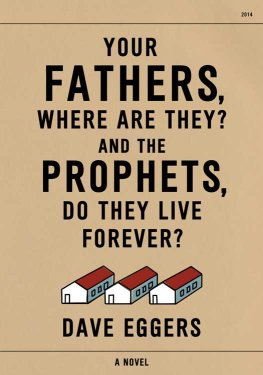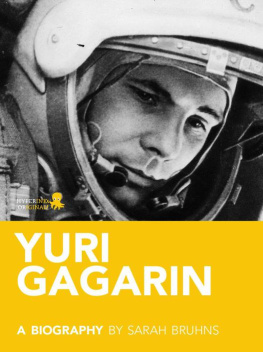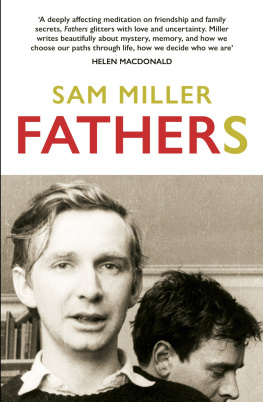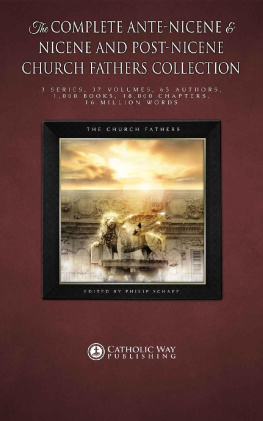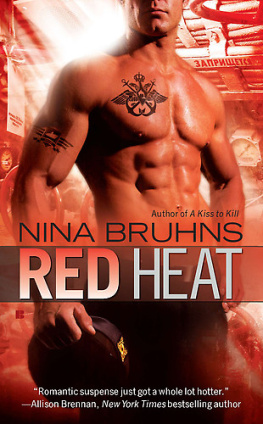Wibke Bruhns - My Fathers Country
Here you can read online Wibke Bruhns - My Fathers Country full text of the book (entire story) in english for free. Download pdf and epub, get meaning, cover and reviews about this ebook. year: 2009, publisher: Random House, genre: Non-fiction. Description of the work, (preface) as well as reviews are available. Best literature library LitArk.com created for fans of good reading and offers a wide selection of genres:
Romance novel
Science fiction
Adventure
Detective
Science
History
Home and family
Prose
Art
Politics
Computer
Non-fiction
Religion
Business
Children
Humor
Choose a favorite category and find really read worthwhile books. Enjoy immersion in the world of imagination, feel the emotions of the characters or learn something new for yourself, make an fascinating discovery.

- Book:My Fathers Country
- Author:
- Publisher:Random House
- Genre:
- Year:2009
- Rating:4 / 5
- Favourites:Add to favourites
- Your mark:
- 80
- 1
- 2
- 3
- 4
- 5
My Fathers Country: summary, description and annotation
We offer to read an annotation, description, summary or preface (depends on what the author of the book "My Fathers Country" wrote himself). If you haven't found the necessary information about the book — write in the comments, we will try to find it.
My Fathers Country — read online for free the complete book (whole text) full work
Below is the text of the book, divided by pages. System saving the place of the last page read, allows you to conveniently read the book "My Fathers Country" online for free, without having to search again every time where you left off. Put a bookmark, and you can go to the page where you finished reading at any time.
Font size:
Interval:
Bookmark:
Contents
In August 1944, Hans Georg Klamroth was executed for his part in the 20 July plot to assassinate Hitler. Wibke Bruhns, his youngest daughter, was six years old at the time. Decades later, watching a documentary about the events of 20 July, images of her father in the Third Reich Peoples Court appear on the screen and she realises she never knew him.
In My Fathers Country, Bruhns tells of her search for her father. Returning to her ancestral home in Halberstadt, Northern Germany, she retraces her familys story from Kaiser Wilhelm to the end of World War Two, discovering old photographs, letters and diaries, which she uses to piece together a unique and unforgettable family epic.
Wibke Bruhns was born in 1938 in Halberstadt. She has worked in both TV and print journalism, and as a TV presenter and newsreader. She was a correspondent for Stern magazine in the US and Israel and headed the culture section at one of Germanys largest radio stations, ORB. She has two grown-up daughters and now lives and works as a freelance writer in Berlin.

For Annika and Meike

IVE FOUND A photograph of my father. There are hundreds of them in albums, in envelopes, scattered among diaries, reports, letters. Hans Georg as a child, as a serious-looking adolescent, in uniforms from the First and Second World Wars, as a father with us, his children. This one was hidden away inside one of the miniatures that used to stand on my mothers bedside table.
After she died I took the three little pictures away with me: my Danish grandmother Dagmar with her inevitable flowery hat, Hans Georg in hunting garb sitting on the terrace steps in Halberstadt with a dead deer in front of him, and my mother Else as a little girl in a white lace dress, with patent leather shoes and uneven stockings. All three the enchanting old lady, the contented huntsman, the sceptical child have smiled at me from my desk for fifteen years, a restrained smile, detached, really, from the precious little frames which, along with the fact that they had once belonged in Elses bedroom, were my reason for putting them there.
But when baby Else slipped in her frame, I opened it up to put her back in place, and Hans Georg appeared before me. Else had hidden him behind her childhood portrait, a grief-stricken man of about thirty he doesnt look so forlorn in any of the other photographs, apart from the last ones, before the Peoples Court. Ive hidden the child-Else behind him for now, but Ill not be able to endure that hopeless face for long. Perhaps that was why Else covered him with her early childhood memories. Her photograph must have been taken some time around 1900, shes barely two nurtured, cared for, loved. Anything seemed possible back then, none of the things that were to happen could have been foreseen.
So why did she cut the face of her husband, so young and so forlorn, to fit the oval of the formal little frame? At the time when this photograph of Hans Georg was taken they were still given to laughing a lot. They were famous among their circle of friends for their quick and ready wit. And when did she switch the photographs after his death in Pltzensee? Or before that, when the years of separation during the war estranged them from one another, when each of them functioned alone, eroding away their sense of togetherness? Or was it when Hans Georg betrayed Else?
For months I have been searching through the lives of strangers, reading letters, diaries, pages written over a period of a hundred years, which I have assembled from the catacombs of the various branches of our tribe. The Klamroths have existed for so long, and they have always seen themselves as a clan, they still do today, even though the focus of their pride the estate in Halberstadt was lost to them in the war. What I read there isnt really alien to me. I know who these people are. And yet I dont know them. By the 1930s, Hans Georg had a 16mm movie camera and recorded the familys parties: hunting on horseback in the Harz mountains, bowls in the garden, and the elder children, still young at the time, playing on the swing. I recently received the digitalised version of the films, and was able to identify everyone in the pictures, although Id never met many of them, or had done so only when I was a toddler.
I see evening dress goodness, they liked their evening dress! and the expensively styled ladies, and I wonder why Else dressed so badly, when she had Suli Woolnough as a dressmaker, whose elegant designs were considered quite exotic in Halberstadt at the time. They held extravagant fancy-dress parties on the eve of weddings, and for Grandmother Gertruds sixtieth birthday there are performances by Benno Nachtigall, the familys own band of balladeers. In my cupboard I store the songs they wrote the Bnkellieder and Schttelverse. Strange lives.
I find pictures of Hans Georg at the piano he used to sing, everybody in this family sang, in harmony, all the time, and the whole clan played musical instruments. Cantatas, street ballads, the whole standard song-book from start to finish and back again, not to mention all the family songs. But I dont know his voice. I feel sure Ive never heard it, although that cant be so he must have said something to me when I was a little girl. He would surely have sung to me, too, on the rare occasions he came home from the war.
Neither do I know how he spoke, the man who was my father. It would be a great help to me now, in understanding how he was. Does he wave his hands about like I do, is he noisy, impulsive? When he writes, and he writes a lot, he sounds measured and correct. He never makes mistakes, not even when typing, and doesnt need to correct his syntax, spelling, and least of all his thoughts. Very tidy, the whole thing. His handwriting tiny, neat and legible whether in Stterlin, the German style of the old days, or in Roman script. His writing is just like his fathers my grandfather. Was there anyone he respected as highly? Thinking of the way the two of them set out their photograph albums in the same way white ink, frames drawn accurately around each picture, minute inscriptions...
And then theres Else: chaos in her head and her handwriting, spilling over the edges, extravagant, scatterbrained. Enormous letters, lines rising and falling, crossed out, written over. When she fills in forms by hand, her handwriting rages like a dog imprisoned in a cage. Theres a big housekeeping book household planning and accounts for the years between 1938 and 1943. The two of them kept the book alternately Hans Georg in marshalled columns of numbers, no mistakes, never a moments doubt. Else trots through the columns, wanders across the page, jots down rapid question marks and footnotes she went on battling with calculations like these long after the war. They never added up and left Else in despair, she would have so loved to be orderly.
In her letters she wrote lots, too she flits from one subject to the next, batters the grammar and punctuation, leaves the pages scattered with doubtful corrections. She laughs and cries without transition, moral advice for daughters living away from home is mixed up in with descriptions of her varied experiences managing a big house with lots of guests. The battle with 20 hundredweight of peas and unruly mason jars leads her directly to the observation that Gods counsel is seldom convincing. Some idiot damn them! has mislaid the key to the silver cupboard, and incidentally, Else, would have liked to have had it out with Hegel.
Next pageFont size:
Interval:
Bookmark:
Similar books «My Fathers Country»
Look at similar books to My Fathers Country. We have selected literature similar in name and meaning in the hope of providing readers with more options to find new, interesting, not yet read works.
Discussion, reviews of the book My Fathers Country and just readers' own opinions. Leave your comments, write what you think about the work, its meaning or the main characters. Specify what exactly you liked and what you didn't like, and why you think so.

